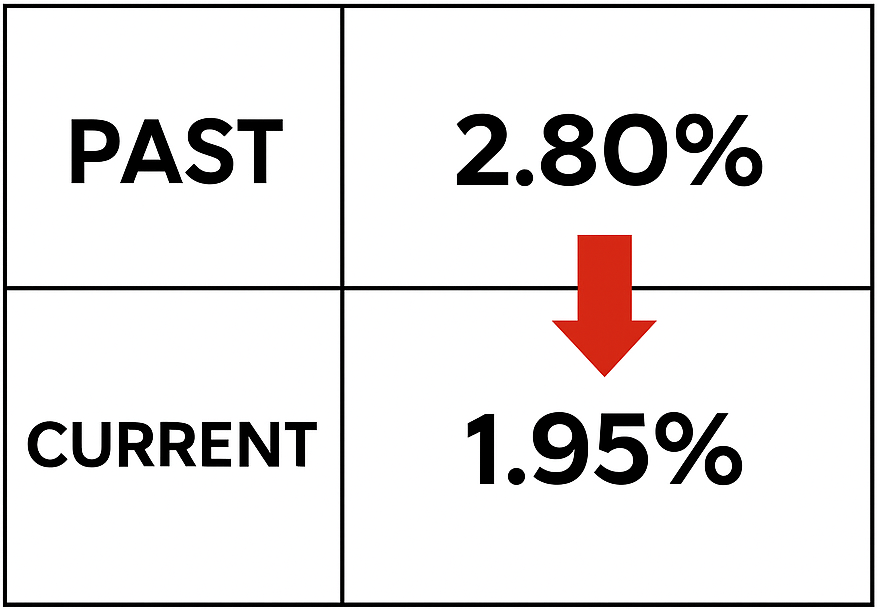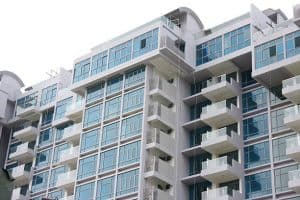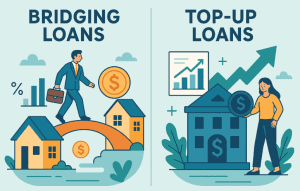Buying your first home in Singapore? Choosing between an HDB loan and a bank loan can feel overwhelming with so many factors to consider—from housing loan rates to mortgage interest rate Singapore. Getting it right can save you thousands.
An HDB loan offers stability, while bank loans often come with lower mortgage loan rate Singapore. But which is better for your financial goals? This guide unpacks all the key differences so you can make the smartest choice.
Looking to compare the latest home loan rates in Singapore? Ace Mortgage’s home loan rates in Singapore page offers up-to-date insights and personalized advice to help you get the best deal. For more details on mortgage loan Singapore, stay tuned as we dive deeper into the pros and cons of each option.
Key Differences Between HDB Concessionary Loan and Bank Loan
Making sense of home loan Singapore options starts with understanding two very different paths: the HDB concessionary loan and traditional bank loans. Here’s how they compare in structure, benefits, and real-world impact.
What Is an HDB Concessionary Loan and How Is It Priced?
An HDB concessionary loan is a government-backed housing loan available exclusively for HDB flat buyers. It’s linked to your CPF Ordinary Account (OA) rate, plus a small margin depending on your loan type, typically making it more predictable than bank rates.
- Pricing model: Based on CPF-OA interest—currently around 2.6–2.7%—with no hidden spreads.
- Simplicity: One flat rate means no surprises.
- Expert tip: If you prefer consistency and hate rate volatility, an HDB loan is a strong choice. For more on eligibility and loan setup, check out Ace Mortgage’s hdb loan page.
What Are the Common Bank Loan Types (SIBOR, SORA, Fixed)?
Bank loans in Singapore aren’t all the same. The most popular types are:
- SIBOR-pegged loans: Linked to the Singapore Interbank Offered Rate — a classic floating rate option.
- SORA-pegged loans: A newer standard based on the Singapore Overnight Rate Average, a key benchmark for many lenders.
- Fixed-rate packages: Locked-in interest over a fixed term (e.g., 1–5 years) for peace of mind.
Choose SORA for a more stable floating rate than SIBOR. Go fixed if you want certainty in monthly repayments, but be wary of early repayment penalties.
How Do Interest Rates Compare Between HDB and Bank Loans?
Rates are where these loans really differ. Let’s break it down clearly:
Interest Rates Comparison — HDB vs Bank Loans in Singapore
| Loan Type | Rate Range | Pros | Cons |
|---|---|---|---|
| HDB loan | ~2.6–2.7% | Stable, transparent, CPF-linked | Slightly higher than some bank rates |
| Bank loan (SIBOR/SORA) | ~1.6–3% (varies) | Potentially lower, flexible packages | Fluctuating rates, tie-in periods |
| Fixed-rate loan | ~2.0–2.5% for 2–3 years | Budget-friendly monthly payments | May revert higher after fixed period |
Guest Expert Tip:
“HDB loan is good if you just want to keep things stable and not worry too much about the rates. But if you don’t mind tracking the rates and maybe refinancing later on, a bank loan—especially one tied to SORA—might help you save on interest in the long run.”
For authoritative context on interest rate trends, the Monetary Authority of Singapore website is a great resource to check SORA/SIBOR movements and upcoming bank loan package offerings.
Interest Rate Stability and Risk Management
Understanding mortgage interest rate Singapore trends is key when choosing between an HDB loan and a bank loan. Let’s explore how each option handles interest rate stability—and how you can manage risks for your home loan.
Why HDB Loans Offer Predictability and Low Fluctuation
An HDB loan is pegged to the CPF Ordinary Account (OA) rate plus a small margin, currently set at 2.6%. This makes it very stable compared to bank loans. Since 1999, this rate hasn’t changed—giving borrowers peace of mind with predictable monthly payments.
- Predictable payments mean easier budgeting and no surprises even if market rates fluctuate.
- Expert tip: HDB loans are great for buyers who value stability and prefer not to monitor rates all the time.
For more insights into housing loan Singapore options, check out Ace Mortgage’s guide on home loan rates in Singapore.
What Interest Rate Risks Come with Bank Loans?
Bank loans come with different structures: SIBOR, SORA, and fixed-rate packages. While they can offer lower rates, they also carry the risk of rate fluctuations.
- SIBOR-pegged loans: Depend on the Singapore Interbank Offered Rate, which can rise or fall based on market conditions.
- SORA-pegged loans: Usually more stable but still subject to movement in short-term rates.
- Fixed-rate loans: Lock in a rate for a period but might revert to higher rates later.
This means your mortgage loan Singapore payments could change, affecting your budget. Before you choose, compare the latest home loan rates Singapore and keep an eye on market forecasts. For reliable market updates, visit the Monetary Authority of Singapore.
How to Use Fixed-Rate or Hybrid Packages for Stability
If you want stability but also want to take advantage of potentially lower bank rates, consider a fixed-rate mortgage Singapore package.
- Fixed-rate packages: Offer stable payments during the lock-in period (typically 1–3 years).
- Hybrid packages: Combine fixed rates at the start with floating rates later on—giving you the best of both worlds.
Expert tip: A hybrid package can help you ease into the mortgage market, especially if you’re not sure how long you plan to stay in your home or want to protect against sudden rate hikes.
Loan-to-Value (LTV) Limits and Downpayment Requirements
When it comes to buying a home in Singapore, understanding loan-to-value (LTV) limits and downpayment requirements is crucial. Whether you choose an HDB loan or a bank loan, these factors determine how much you can borrow—and how much cash or CPF savings you need upfront.
How Much Can You Borrow with an HDB Loan?
An HDB loan typically allows you to borrow up to 90% of your flat’s value or purchase price, whichever is lower. This high LTV ratio means you only need to fork out 10% as a downpayment, and you can use your CPF Ordinary Account savings for the entire amount.
- LTV ratio: Up to 90% for HDB loans.
- Downpayment: Minimum 10% (CPF allowed).
- Expert tip: An HDB loan is perfect if you want to conserve your cash for renovations or other expenses.
For more details on housing loan Singapore, visit the HDB InfoWEB.
What Are Bank Loan LTV Caps and Downpayment Rules?
Bank loans, on the other hand, have stricter LTV limits. The maximum LTV for bank loans is typically 75%, which means you’ll need to prepare a downpayment of at least 25%—with at least 5% in cash.
- LTV ratio: Up to 75% (varies based on existing loans and credit profile).
- Downpayment: Minimum 25% (at least 5% must be cash).
- Expert tip: Plan ahead for the cash portion—it’s a non-negotiable requirement for bank loans in Singapore.
If you’re comparing mortgage loan Singapore packages, check out Ace Mortgage’s mortgage loan Singapore page for the latest insights and advice.
How Much CPF and Cash Is Needed for Each Loan Type?
Here’s a quick overview to help you plan your CPF and cash savings for both HDB and bank loans:
CPF and Cash Requirements for HDB and Bank Loans
| Loan Type | CPF Usage | Cash Requirement |
|---|---|---|
| HDB loan | Up to 10% of purchase price (fully CPF) | No minimum cash required |
| Bank loan | Up to 20% of purchase price | At least 5% of purchase price |
Expert tip: If you want maximum CPF flexibility, the HDB loan is the way to go. But if you have the cash buffer and want to explore lower rates, a bank loan might give you more options.
For authoritative updates on LTV rules and guidelines, the Monetary Authority of Singapore is a trusted resource.
Comparing Repayment Flexibility and Penalties
Understanding repayment flexibility and penalties is crucial when choosing between an HDB loan and a bank loan. Let’s break down how these factors can affect your mortgage experience in Singapore.
Can You Prepay an HDB Loan Early Without Fees?
One of the biggest advantages of an HDB loan is its flexibility. You can make partial or full repayments anytime without any prepayment penalties. This means you can pay down your loan faster if you come into extra cash—no strings attached.
- No lock-in period: You can prepay anytime without penalty.
- Expert tip: This flexibility is especially helpful if you plan to sell your flat or upgrade to a new property in the future.
For more on HDB loan features and eligibility, check out HDB home loan for a full breakdown of benefits.
What Prepayment Penalties Apply to Bank Loans?
Bank loans usually come with a lock-in period, typically 2 to 3 years, during which prepayment penalties apply. This means you’ll face a fee—often 1–1.5% of your outstanding loan—if you decide to repay early or refinance during this period.
- Lock-in period: Commonly 2–3 years.
- Penalty fees: 1–1.5% of outstanding loan.
- Expert tip: Before you commit to a mortgage loan Singapore, always check the fine print on prepayment clauses so you’re not surprised by hidden costs.
For tailored advice on comparing mortgage loan Singapore options, explore mortgage loan Singapore for a comprehensive guide to packages from leading banks.
How Loan Tenure and Flexi Payment Options Compare
Loan tenure and repayment structures vary between HDB and bank loans:
- HDB loans typically allow a maximum tenure of 25 years, with standard monthly payments that are straightforward and easy to plan around.
- Bank loans can stretch up to 30 years, depending on the lender and your eligibility. Some banks also offer flexi payment features, like interest-only periods or step-up repayment options, giving you more control over your cash flow.
- Expert tip: A longer tenure means lower monthly payments but higher total interest paid. Use a mortgage loan repayment calculator to see how different loan structures impact your monthly outlay and total interest.
For handy tools to estimate your payments and plan your budget, try the mortgage loan repayment calculator.
For additional guidance on market regulations, the Monetary Authority of Singapore is a reliable resource on home financing guidelines.
Affordability and Stress Test Comparisons
Navigating home loan Singapore options means understanding how affordability and stress tests affect your eligibility. Whether you’re eyeing an HDB loan or a bank loan, these rules shape how much you can borrow—and how to plan your budget.
How Stress-Test Rates Impact Loan Eligibility for HDB
For HDB loans, stress tests are relatively straightforward. The Housing & Development Board currently uses a standard interest rate of 3% (as a stress test rate) to ensure you can handle potential rate increases, even though the actual HDB loan rate has remained stable at 2.6% since 1999.
- Stable benchmark: Makes it easier to predict repayments.
- Expert tip: If you’re confident about your income stability, passing the stress test is usually manageable for most buyers.
From what I’ve seen, HDB’s interest rate policy has been pretty consistent over the years, so I wouldn’t expect sudden surprises for borrowers anytime soon.
How Bank Loan MSR/TDSR Rules Tighten Borrowing Capacity
Bank loans are subject to stricter requirements, including the Mortgage Servicing Ratio (MSR) and the Total Debt Servicing Ratio (TDSR). These rules ensure you don’t overextend your finances:
- MSR: Caps your loan repayments at 30% of your gross monthly income (for HDB flats and ECs).
- TDSR: Caps all your monthly debt obligations (including car loans, credit cards, etc.) at 55% of your gross monthly income.
- Expert tip: Watch out for mortgage interest rate Singapore trends—rising rates can impact how much you can borrow under these stress test rules.
Curious about how much you can actually borrow and which bank packages might fit your needs? It’s always worth exploring different mortgage loan Singapore options to see which one lines up best with your budget and goals.
How to Boost Affordability with CPF, Grants, and Other Strategies
Boosting your affordability can help you get the loan you need, even with stress tests in place:
- CPF savings: Tap into your CPF Ordinary Account to offset your downpayment or monthly instalments.
- Housing grants: First-time buyers may be eligible for Enhanced CPF Housing Grants, giving a significant leg-up on affordability.
- Flexible loan tenure: A longer loan tenure can reduce monthly payments, but keep an eye on total interest costs.
Expert tip: Use a mortgage loan repayment calculator to estimate different repayment scenarios. This helps you find the best balance between loan amount and monthly affordability.
Check out the mortgage loan repayment calculator to crunch the numbers yourself. For government schemes and updated CPF grant information, visit the CPF Board website.
Financial Scenarios and Strategic Use Cases
Choosing between an HDB loan and a bank loan isn’t just about interest rates—it’s about your lifestyle, financial goals, and risk appetite. Here’s how each option fits into different scenarios.
When Taking an HDB Loan Makes Sense
An HDB loan is a great option if you value stability and prefer not to worry about fluctuating interest rates. With the HDB loan rate consistently pegged at 2.6% since 1999, it offers predictability and peace of mind—especially for first-time homebuyers.
- Predictable payments: Makes monthly budgeting easier.
- Lower cash outlay: Up to 90% loan-to-value ratio, with the downpayment fully payable via CPF.
Expert tip: If you’re planning to stay in your HDB flat long-term and want a hassle-free loan, an HDB loan is often the way to go.
For a detailed look at eligibility and application processes, visit the HDB home loan page.
When a Bank Loan Might Save You Money
If you’re comfortable with a bit more risk and can keep an eye on mortgage interest rate Singapore trends, a bank loan might work out better in the long run. Bank loans typically offer lower interest rates, especially with SORA-pegged loans, which can translate into significant savings.
- Lower starting rates: Can reduce monthly payments compared to an HDB loan.
- Refinancing opportunities: After the lock-in period, you can switch packages to chase the best deal.
- Expert tip: If you’re financially stable and open to refinancing later on, a bank loan could save you quite a bit over time.
Curious about the latest lenders with the lowest rates? Check out the updated mortgage loan Singapore guide, which is refreshed every month to bring you the best deals.
Planning for Early Repayment or Refinancing
Thinking ahead about early repayment or refinancing can help you save on interest and adapt to changing financial needs.
- HDB loan: No prepayment penalties make it easy to pay down faster if you get a bonus or windfall.
- Bank loan: Early repayment usually comes with penalties during the lock-in period, but once that’s over, you can explore refinancing.
- Expert tip: Use a mortgage loan repayment calculator to estimate your monthly savings and decide when it’s worth refinancing or paying off early.
If you’re considering refinancing, the refinance home loan page provides a helpful overview of the process, potential savings, and how to get started.
Step-by-Step Loan Application and Approval Journey
Applying for a home loan in Singapore might feel like a daunting task, but with the right approach, it’s simpler than it looks. Here’s a step-by-step guide to getting your application approved smoothly—whether you’re going for an HDB loan or a bank loan.
Getting In-Principle Approval (IPA) for a Bank Loan
Before you sign any purchase agreements, it’s smart to secure an In-Principle Approval (IPA) from a bank. This gives you a clear idea of how much you can borrow based on your financial health.
- What is an IPA? A bank’s written indication of the loan amount you’re eligible for, subject to final approval.
- Why is it important? It helps you plan your property budget realistically, giving you an edge in negotiations.
- Expert tip: Compare different bank packages for the mortgage loan Singapore to find the best rates and lock-in periods that fit your needs.
Curious about the latest deals and how to make the most of your IPA? Compare different Singapore mortgage broker packages to find the one that works best for you.
Applying for an HDB Loan: Eligibility and CPF Requirements
Applying for an HDB loan is straightforward if you meet the eligibility criteria:
- Eligibility: At least one buyer must be a Singapore Citizen; household income ceiling must not exceed HDB’s set limits.
- CPF requirements: You can use your CPF Ordinary Account for the downpayment and monthly instalments.
- Expert tip: Make sure you’ve got your HDB loan eligibility letter ready before you start shopping for flats.
For a deep dive into the HDB loan process, head over to the HDB home loan page for a complete guide.
What Documents and Checks Are Needed for Either Loan?
Getting your paperwork right is key for a smooth application process, whether you’re applying for an HDB loan or a bank loan.
- For HDB loan: Identity documents, income statements, CPF statements, and proof of eligibility (like your HLE letter).
- For bank loan: In addition to the basics, banks may ask for credit card statements, outstanding loans, and your latest payslips.
- Expert tip: Use a mortgage loan repayment calculator to estimate your monthly commitments before submitting your documents.
To estimate your monthly repayments, check out the mortgage loan repayment calculator and plan your budget effectively.
For official guidelines, the Monetary Authority of Singapore also provides helpful resources on application checks and borrower eligibility.
Key Updates and Policy Changes to Watch
In Singapore’s property market, staying on top of policy changes and interest rate trends is key to making sound home loan decisions. Here’s what to watch for in 2025 and beyond—whether you’re eyeing an HDB loan or a bank loan.
CPF-OA Rate Reviews and HDB Loan Rates
HDB loans are pegged at 0.1% above the CPF Ordinary Account (OA) rate, which has held steady at 2.5% for years—resulting in a consistent HDB loan rate of 2.6%. This stability means your monthly payments are less likely to surprise you.
Expert opinion: CPF rates don’t change often, so your payments tend to remain stable. It’s reassuring for those who prefer predictability in their finances.
Interest Rate Trends: SIBOR, SORA, and Fixed Packages
Bank loans are now primarily tied to SORA, which replaced the phased-out SIBOR. While SORA offers more transparency and is less volatile than SIBOR, it’s still a floating rate that can change with market conditions. Fixed packages provide stability but may revert to higher floating rates after the lock-in period.
Comparing SORA and Fixed Packages in Singapore
| Interest Rate Option | How It Works | Pros | Cons |
|---|---|---|---|
| SORA | Based on overnight rates in Singapore | More stable than SIBOR; transparent | Still subject to market fluctuations |
| Fixed Packages | Locks in rates for 1–3 years | Predictable payments during lock-in | May revert to higher rates after the fixed period |
Expert tip: Use a mortgage loan repayment calculator to test how different interest rate packages affect your monthly payments. It’s a great way to stress-test your budget.
Check out the mortgage loan repayment calculator to see how your monthly payments might change under different rate scenarios.
New MAS Housing Measures and LTV Limit Revisions
Policy changes from the Monetary Authority of Singapore (MAS) can impact borrowing limits, minimum downpayment requirements, and stress-test calculations.
- LTV limits: Adjusted periodically to keep the property market stable.
- TDSR/MSR rules: Affect how much of your income can go toward mortgage payments.
- Expert opinion: Keeping up with MAS announcements helps you avoid surprises and plan ahead for your home financing needs.
If you’re considering refinancing to adapt to policy changes, check out the refinance home loan guide for smart strategies to restructure your mortgage.
Summary Table and Decision Checklist
Still deciding between an HDB loan and a bank loan? Here’s a handy summary table plus a checklist to guide your decision—so you can pick the option that suits your needs best.
Side-by-Side Comparison of Costs, Flexibility, and Risks
This quick reference table compares key factors like interest rates, downpayment requirements, and repayment flexibility—so you can see at a glance which loan type aligns with your goals.
Comparing HDB Loan and Bank Loan in Singapore
| Factor | HDB Loan | Bank Loan |
|---|---|---|
| Interest Rates | Fixed at ~2.6% (CPF OA +0.1%) | Floating (SORA) or Fixed Packages (~1.5–3%) |
| Downpayment | 10% (fully CPF) | 25% (5% cash, 20% CPF) |
| Repayment Flexibility | No prepayment penalty | Penalty during lock-in period (1–1.5%) |
| Loan Tenure | Up to 25 years | Up to 30 years |
| Stability | Very stable | Subject to market rates |
| Risk | Low | Higher (rate changes, lock-in terms) |
Loan Decision Checklist: What to Prioritize
Choosing the right loan isn’t just about the numbers—it’s about your financial goals, risk tolerance, and long-term plans.
- Stability vs. Flexibility: Do you prefer predictable payments or the chance to chase lower rates?
- Downpayment readiness: Can you afford the higher cash portion required for a bank loan?
- Future plans: Planning to upgrade or refinance in a few years? A bank loan might suit you better.
- Expert tip: Use a mortgage loan repayment calculator to project your monthly payments and see how different rates and tenures affect your budget.
Curious to see what fits your financial plan? Check out the mortgage loan repayment calculator for a quick estimate.
When to Consult a Mortgage Advisor or Broker
If you’re feeling overwhelmed by the options—or just want to make sure you’re getting the best deal—speaking to a Singapore mortgage broker can help.
- Brokers have access to packages from multiple banks and can often negotiate better rates than you’d get on your own.
- Expert insight: A broker can also help you understand the fine print, like lock-in periods, prepayment penalties, and refinancing costs.
For personalised guidance, check out the Singapore mortgage broker page to learn how to get started.
Conclusion: Choosing the Right Loan Option for Your Home
Picking between an HDB loan and a bank loan in Singapore is more than just comparing interest rates—it’s about finding a solution that fits your lifestyle, risk tolerance, and financial goals.
- HDB loans offer stability, predictability, and easy CPF usage—great for homeowners who value certainty.
- Bank loans provide potentially lower rates and flexible packages but require careful management of rate fluctuations and lock-in periods.
If you’re serious about securing the best home loan rates Singapore offers, it’s crucial to compare packages, understand the fine print, and plan your repayment strategy.
Ready to make your move?
Use a mortgage loan repayment calculator to estimate your monthly payments, or speak with a Singapore mortgage broker to get personalised advice.
Your dream home is just a few steps away—make sure you choose the loan that gets you there confidently and affordably.














